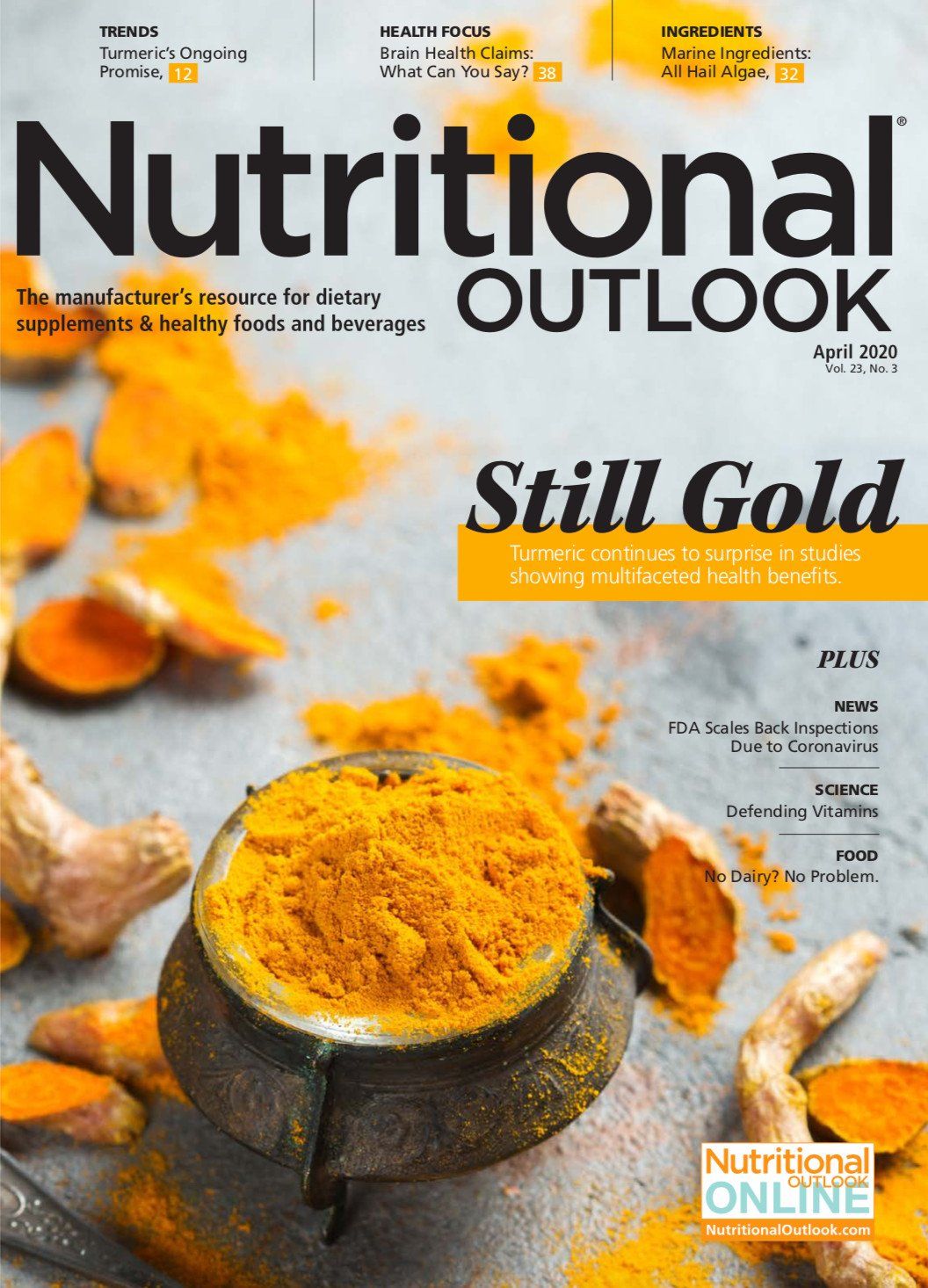Fucoidan for the future: Ensuring the sustainability of fucoidan
In the nutrition products market, a recent surge of interest in marine ingredients has led to increased interest in the sustainability of marine sources.
Photo from Marinova Pty. Ltd.

The United Nations declared 2020 the International Year of Plant Health1. This campaign is dedicated to increasing global awareness of the vital role plants will play in ending hunger, reducing poverty, protecting the environment, and boosting economic development. It also highlights why we need to protect plants at all costs and to ensure their sustainability.
Marine plants are often overlooked when plant health is discussed. They shouldn’t be, however, given that marine plants supply approximately two-thirds of the Earth’s oxygen2 and are vital providers of both habitat and food for the world’s fish stocks. The importance of protecting marine plants has become increasingly clear.
In the nutrition products market, a recent surge of interest in marine ingredients has led to increased interest in the sustainability of marine sources. Take fucoidan, a relatively new ingredient in western nutrition. Some of the world’s leading fucoidan producers are now spearheading environmental and social responsibility efforts.
Research demonstrates that the efficacy of fucoidan is largely determined by the quality of the source seaweed and the extraction process used to isolate it3. Superior fucoidan extracts are therefore derived from wild-grown species sourced from sites far removed from industrial, human, or agricultural contamination. The seaweed is hand-harvested in an environmentally sustainable manner.
A commitment to sustainability does not end with harvesting techniques. Innovative extraction methods utilizing green chemistry techniques are now being used to bring to market high-purity, certified-organic fucoidan compounds. These compounds maintain their extraordinary range of natural bioactive properties, whilst limiting the environmental footprint of the processing activities themselves. While traditional manufacturing techniques have utilized solvents to precipitate the fucoidan polymer from crude extracts, this can lead to contamination of the polysaccharide by the solvent itself. Compromising the chemical integrity of fucoidan extracts in such a way can lead to significant quality shortfalls and, most importantly, can diminish their bioactivity3. Instead, contemporary processes are free of harsh organic solvents and produce fucoidan extracts that remain unadulterated in chemical structure and with no undesirable residues. These mild, aqueous processes also ensure the resulting extracts comply with the most rigorous quality standards and regulatory requirements.
Growing Interest
In recent years, fucoidan extracts have attained regulatory approvals in a number of global jurisdictions for use in food and dietary supplements. Fucoidan is now experiencing a surge in interest for inclusion in a range of products. Extensive research and development programs are helping further the understanding of the benefits of this unique marine compound, including how the physical and chemical properties of fucoidan may be best utilized to enhance efficacy.
As fucoidan extracts become better understood and more widely adopted, it is refreshing to see leading fucoidan producers at the forefront of green-chemistry, low-carbon manufacturing. Initiatives that transform both solid and liquid seaweed wastes from fucoidan manufacturing into new, value-added products for the horticultural sector are a great exemplar of these principles. So, too, is the development of sustainable technology and the use of renewable energy to drive these advanced manufacturing processes.
With rising consumer demand for high-purity products that are certified organic and ethically sourced, the efforts of fucoidan producers committed to quality and sustainability should be highlighted. Fucoidan suppliers should be able to provide clear details about their seaweed harvesting methods, source species, extraction techniques, quality control, scientific credibility, and regulatory frameworks. The future of the fucoidan market undoubtedly lies with ingredients that are of superior quality, extracted from sustainable sources with traceable provenance.
Damien Stringer, PhD, is operations manager at Marinova Pty. Ltd. (Cambridge, Tasmania, Australia). As Marinova’s operations manager, Stringer couples his technical expertise with his consultative approach to lead the laboratory, processing, and research teams. Stringer is a former president of the Tasmanian branch of The Royal Australian Chemical Institute and is a graduate of the Tasmanian Leaders Program.
References:
- International Year of Plant Health 2020 website. Accessed at: www.fao.org/plant-health-2020/en/
- National Geographic resource library. “Save the plankton, breathe freely.” Accessed at: www.nationalgeographic.org/activity/save-the-plankton-breathe-freely/
- Fitton JH. “Maritech® Organic Fucoidans. The Science.” Marinova white paper. Accessed at: https://www.marinova.com.au/assets/Maritech_Organic_Fucoidans_-_The_Science.pdf

Prinova acquires Aplinova to further increase its footprint in Latin America
April 7th 2025Prinova has recently announced the acquisition of Brazilian ingredients distributor Aplinova, which is a provider of specialty ingredients for a range of market segments that include food, beverage, supplements, and personal care.

























